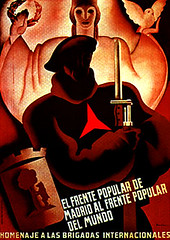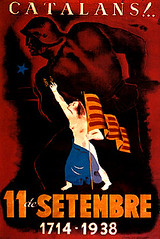Core Curriculum
I would like to say a few words about one of the lecture classes from which my nomination for this award emerged. . . . In order to make sense of the deep pessimism -- a pessimism sometimes bordering on despair in Benjamin's last essays or Adorno and Horkheimer's Dialectic of Enlightenment -- I insisted on the need to read these works as closely tied up with their times: the times of the rise of national socialism and Stalinism. Only then would we discuss how aspects of this theoretical work might pertain to our postmodern present 50 and more years later. I have taught this class since I came to Columbia in 1986, and it has always attracted a diverse group of students from different disciplines and from several schools. I never imagined that a time would come in which this work would begin to resonate deeply with the political and cultural present in the United States. But this was my experience of teaching this material last fall semester, and the queries and concerns of the students reinforced a sense of worry and foreboding.
-- Andreas Huyssen, remarks in accepting the Mark Van Doren Award for Great Teaching, Columbia University (reprinted in Columbia College Today, July 2005)
-- Andreas Huyssen, remarks in accepting the Mark Van Doren Award for Great Teaching, Columbia University (reprinted in Columbia College Today, July 2005)


1 Comments:
Andreas Huyssen is a deeply moral and engaged professor.
His ability to convey what someone like Kracauer or Benjamin was thinking as they wrote...situating their writing in the context of their time...has the effect of deepening his students' (and this student's) understanding of both the orignal work and our own times.
This statement in accepting his award, so finely calibrated in what it leaves out...speaks enormously to events outside his campus...not so many miles from ground zero...and a haven, during WWII, of so many from events that created...
pessimism bordering on despair.
Post a Comment
<< Home